Below are outlined a number of supporting documents that we are developing to accompany our various grant proposals for https://storytogo.ca/accessibility-project/. These are works in-progress that are growing and evolving.
Research Ethics Board
Sample REB Submission
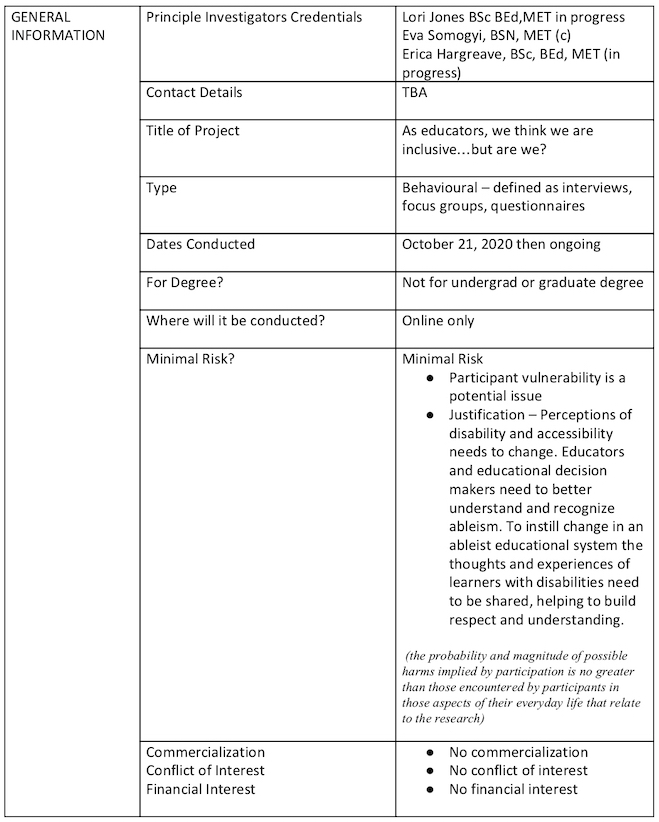
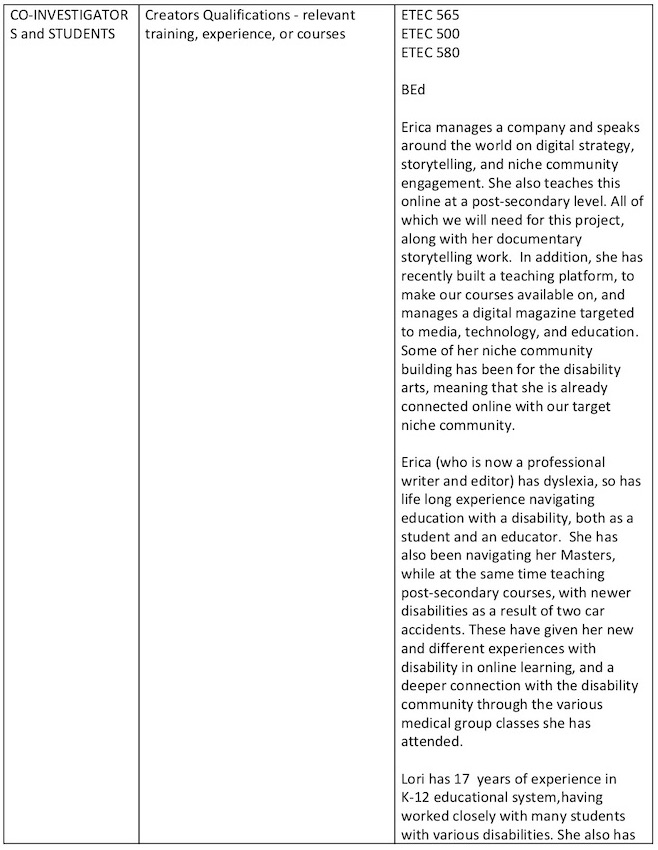
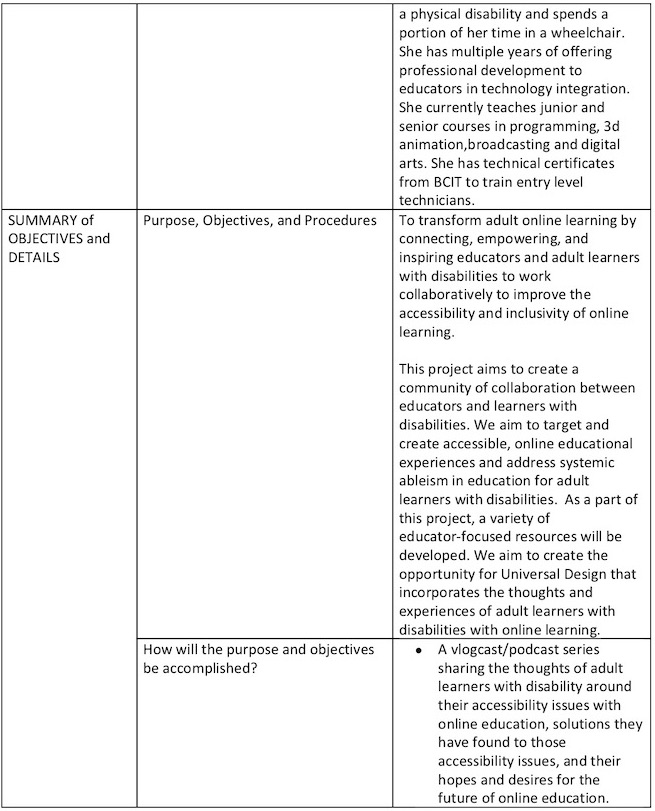
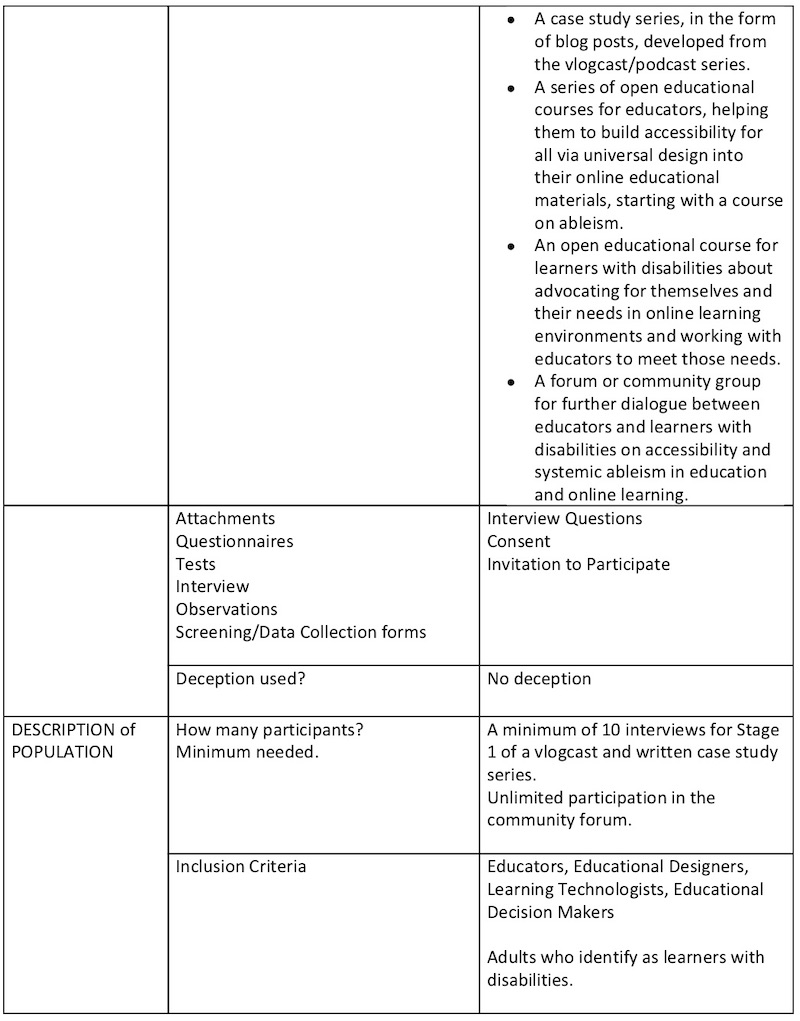
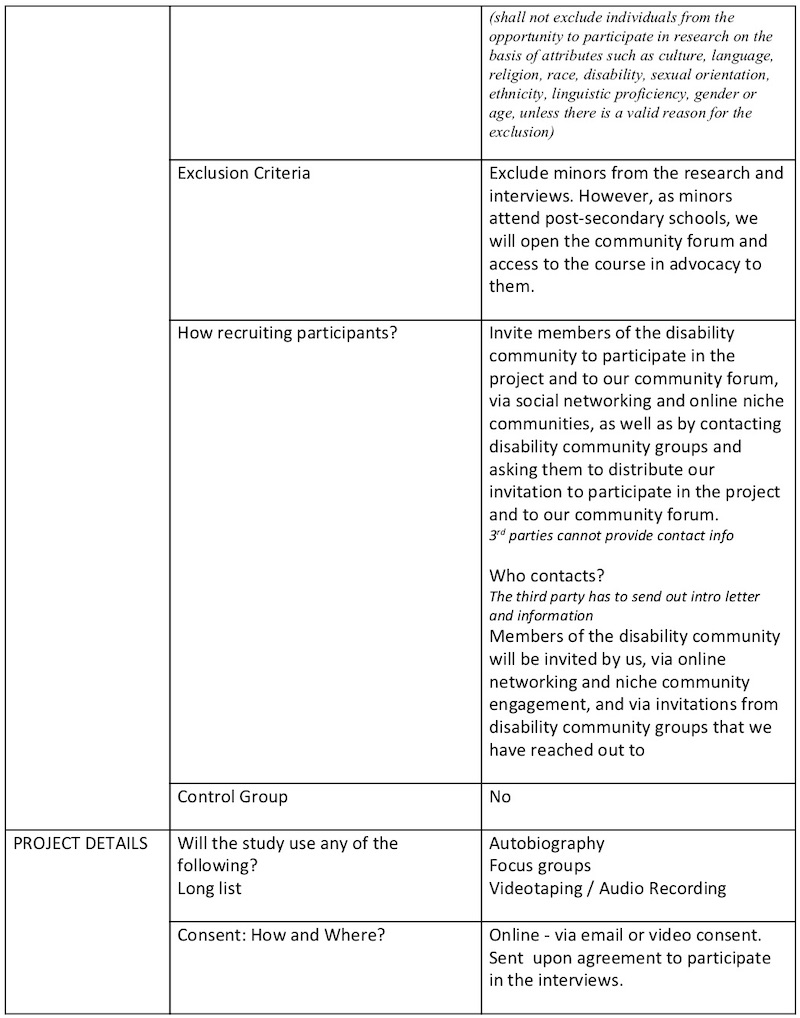
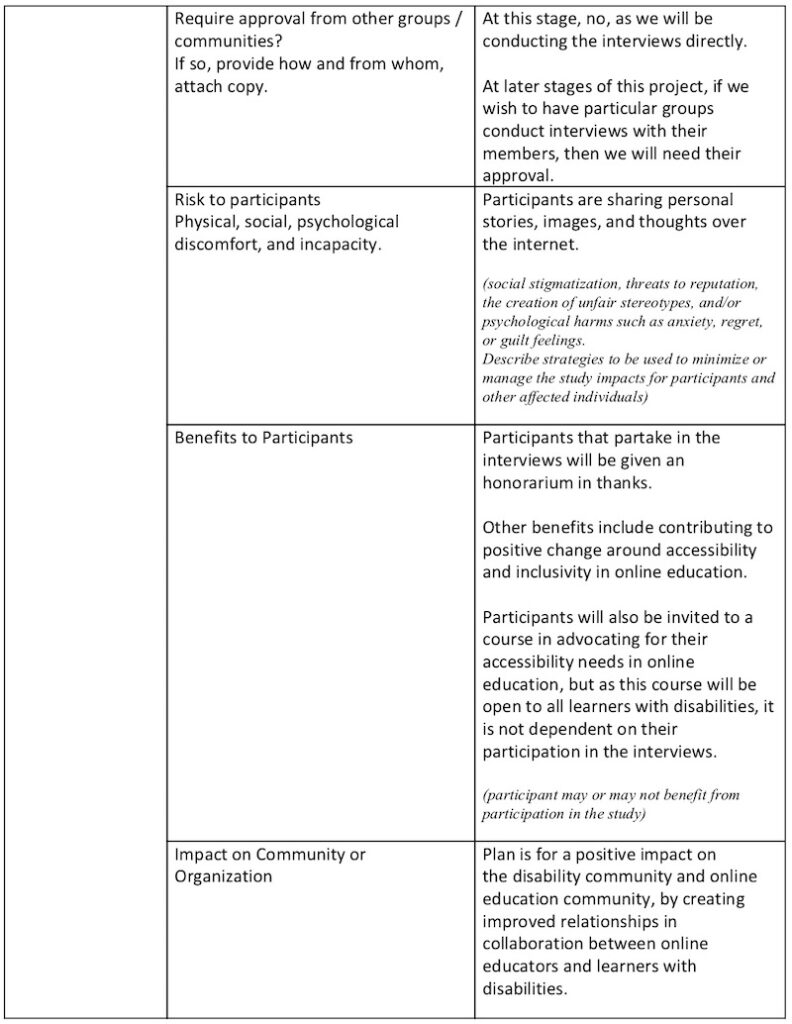
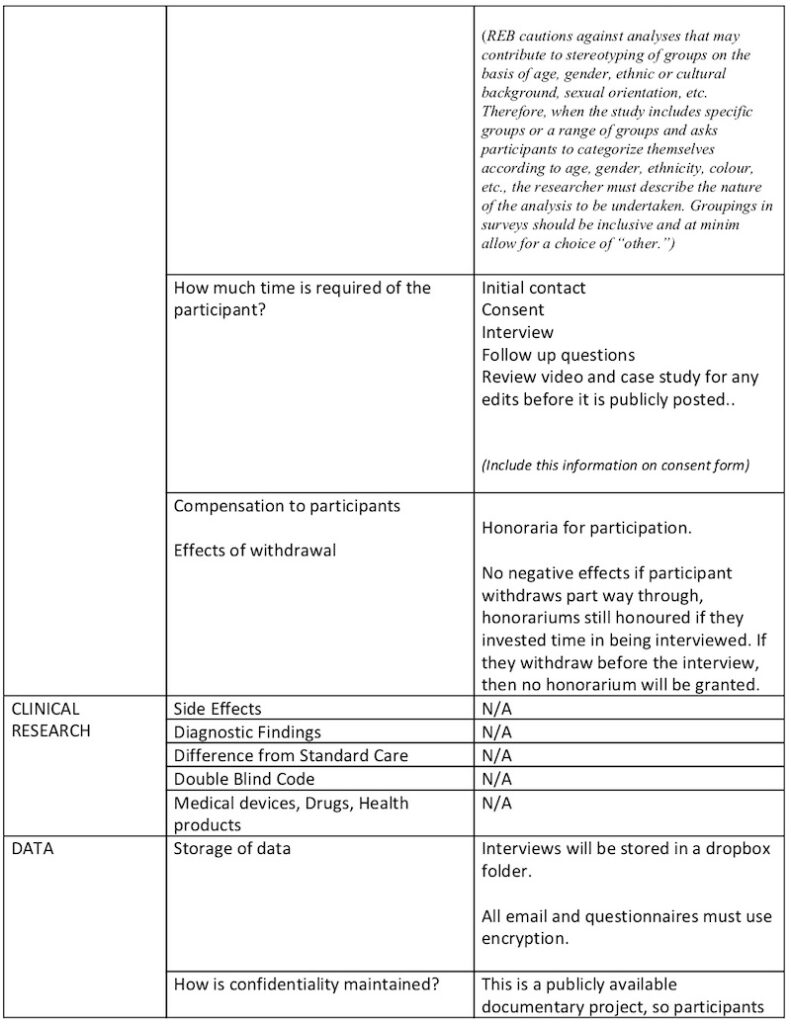
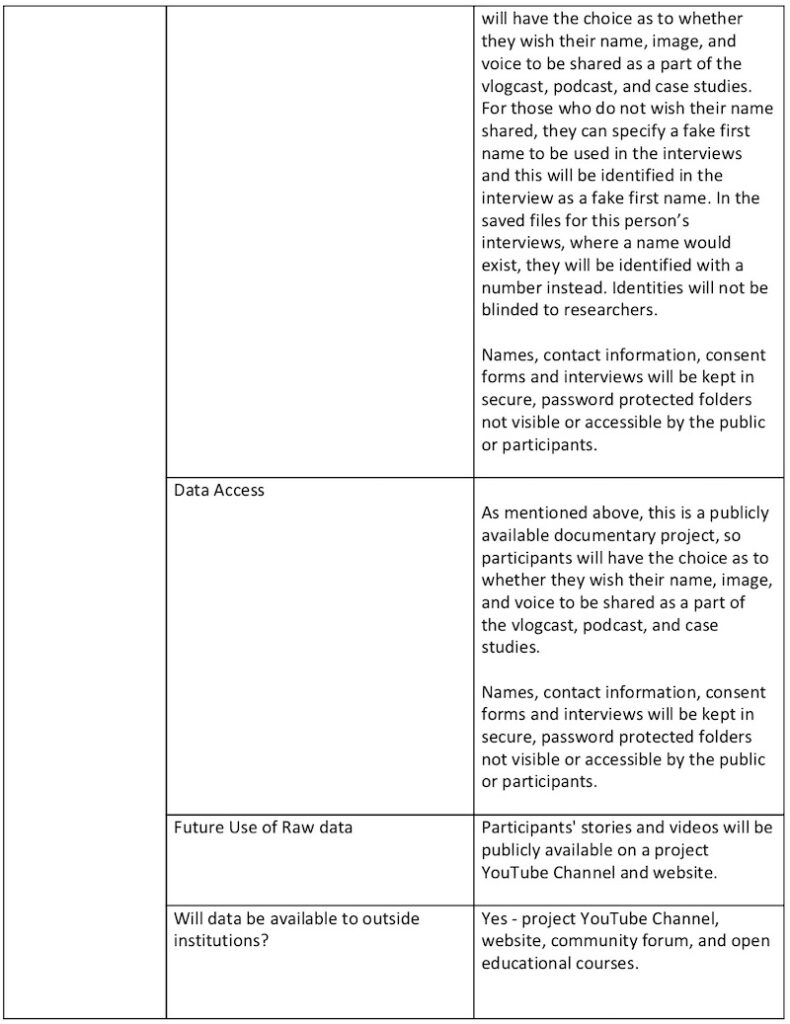
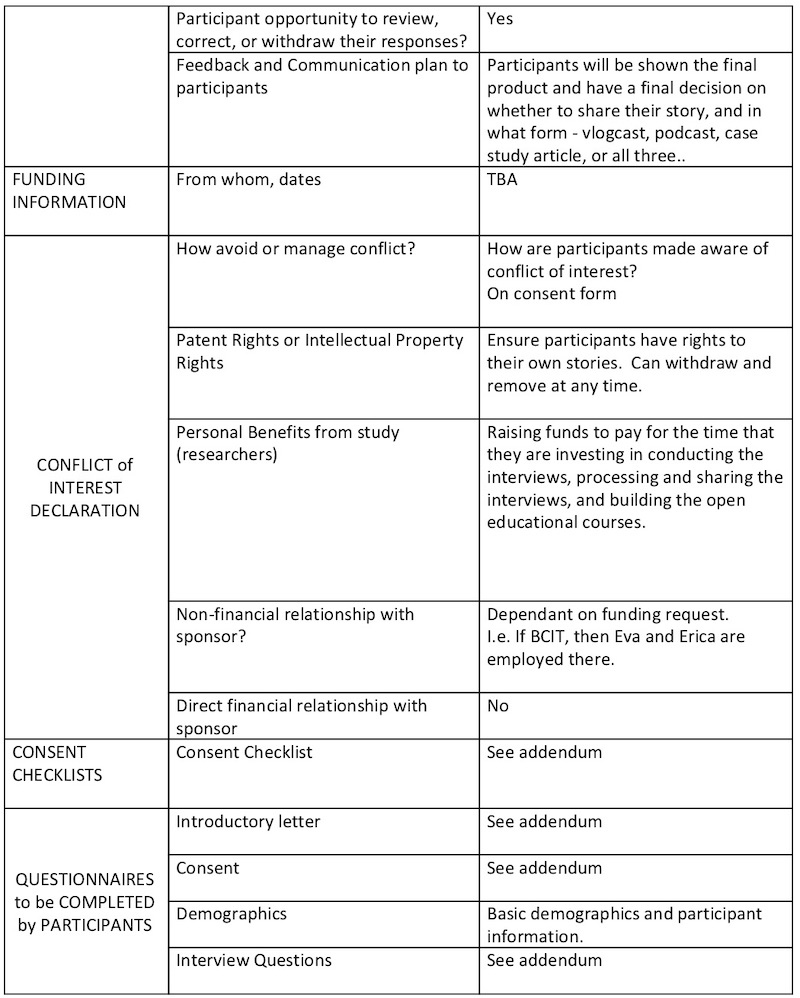

Consent Form
Coming Soon!
Project Materials
Sample Interview Questions for the Vlogcast / Podcasts
- Please introduce yourself and tell us a bit about you.
- If you are comfortable in sharing, can you tell us what disability(ies) you self-identify with?
- Have you studied online before?
For those that have studied online before:
- What style of online course – live sessions, with a schedule and deadline, or an in your own time course?
- What elements of online learning did you find challenging or presented obstacles to you?
- What solutions did you find to these online learning challenges / obstacles?
- Do you have other strategies that help you in studying online?
- Would you find it helpful to discuss your accessibility preferences with the instructor before the course starts?
- How would you like to discuss / work with your instructor to address your accessibility needs?
- What is your preference for how an instructor would approach you about your accessibility needs?
- Can you share an example of a past experience working with an instructor that worked well for you? Why do you think it worked well?
- Can you share an example of a past experience working with an instructor that did not work well for you? Why was it not a good experience?
For those that have not studied online before:
- If you have not studied online before, what are your challenges / obstacles with screentime / digital time in general?
- What solutions have you found to these challenges / obstacles?
- Have you had other people help you with these challenges / obstacles before? What was that experience like – both the good and the bad of it?
- What is your preference when working with others to address accessibility issues?
- What are your fears or concerns with studying online?
- How would you like to work with your instructors to address those fears and concerns, and your accessibility needs?
For everyone:
- What are your hopes / desires for the future of online learning?
Sample Case Study

In 2013, Erica Hargreave, along with two of her colleagues Lori Yearwood and Kevin Ribble launched StoryToGo as a community to explore and discuss contemporary storytelling and media. Over the years StoryToGo has evolved to include a digital magazine and include educators among it’s community of media makers along with educators’ needs and interests. As we’ve grown and evolved, many other storytellers and educators have become a part of StoryToGo, including many members of UBC’s Master of Educational Technology community. In 2019, a big focus of the digital magazine became case studies with our first series being around Building Sustainable Funding Around Storytelling and Educational Projects. Our plan is to build our Accessibility Case Studies as a future series here, along with creating a dedicated area of the site for those interested in exploring and connecting with others around accessibility matters.
Sample Vlogcast Series
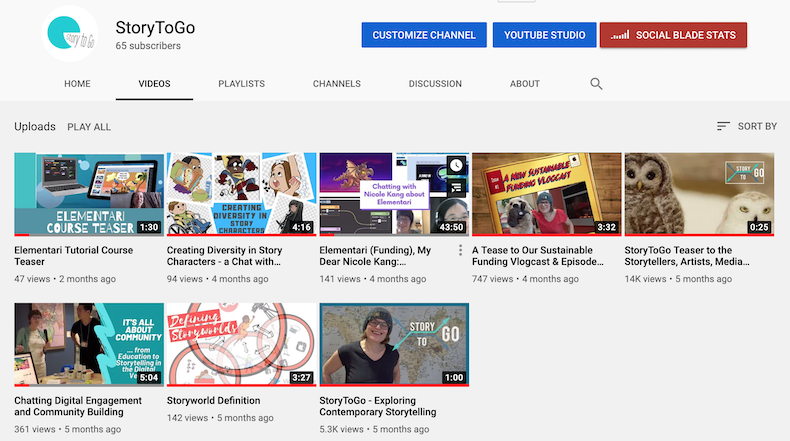
To accompany the growing focus on Case Studies in StoryToGo’s Digital Magazine, earlier in 2020 we launched StoryToGo’s YouTube Channel. While the Channel shares a variety of content around contemporary storytelling, media, technology, and education, a big focus of the channel is to share vlogcast interviews with creators, educators, and technologists from around the world. Our first vlogcasting series on the channel is on Building Sustainable Funding Around Storytelling and Educational Projects. Our plan is to build our Accessibility Vlogcasts as a future series there.
Sample Course Mock Up

The StoryToGo Team’s response to the pandemic has been to finally build the StoryToGo Classroom site, where you can find free, open, private, and paid courses. While the primary focus here is on Contemporary Media Courses, we are also building a Teacher’s Lab, Health Studio, Culture Hub, and Youth Zone on the site. The open educational courses that we build on accessibility matters will be available to educators through the Teacher’s Lab, and the open educational course on advocacy that we build for learners with disabilities will be made available in the mix of contemporary media course on the site. Interested individuals will also be able to navigate to the courses, via the dedicated area on StoryToGo for those interested in exploring and connecting with others around accessibility matters.
Below we have shared a mockup course shell, for the course we are building for educators on Ableism and Inclusivity in Online Education.
Talks at Conferences
Below is a talk that we have submitted to we have submitted to the OE Global Conference:
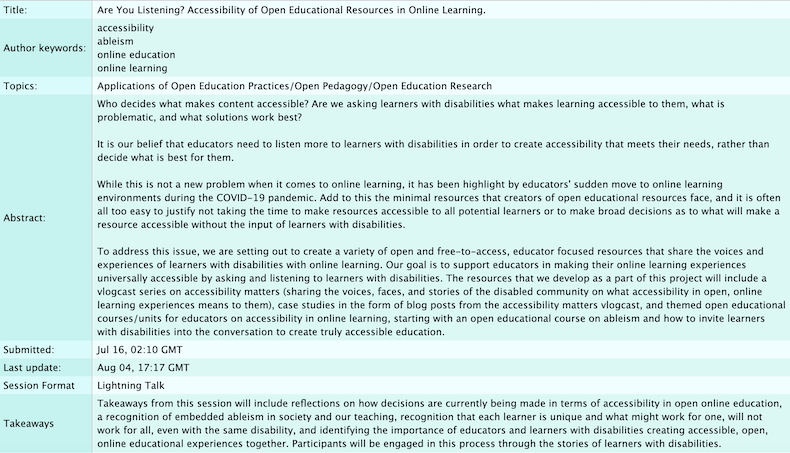
Examples of Ableism and Inequities in Education
Our Reference to Inequities in Access to the Canada Student Grant for Students with Permanent Disabilities for BC Students Requiring a Part Studies Program
In our proposal we referenced ableism and inequities in access to the Canada Student Grant for Students with Permanent Disabilities for BC students requiring a Part Studies Program. These relate to issues of in-access that Erica discovered in attempting to apply for the Canada Student Grant for Students with Permanent Disabilities as a BC Student with Permanent Disabilities who requires Part Time Studies and Online Learning as part of her accessibility. As a result, Erica has started a letter writing campaign to Provincial and Federal Government Officials in an to attempt to change this. Below you will find her letter to the BC Minister of Advanced Education, Skills and Training, the reply she received from StudentAidBC, and Erica’s response to that reply.
The Initial Letter
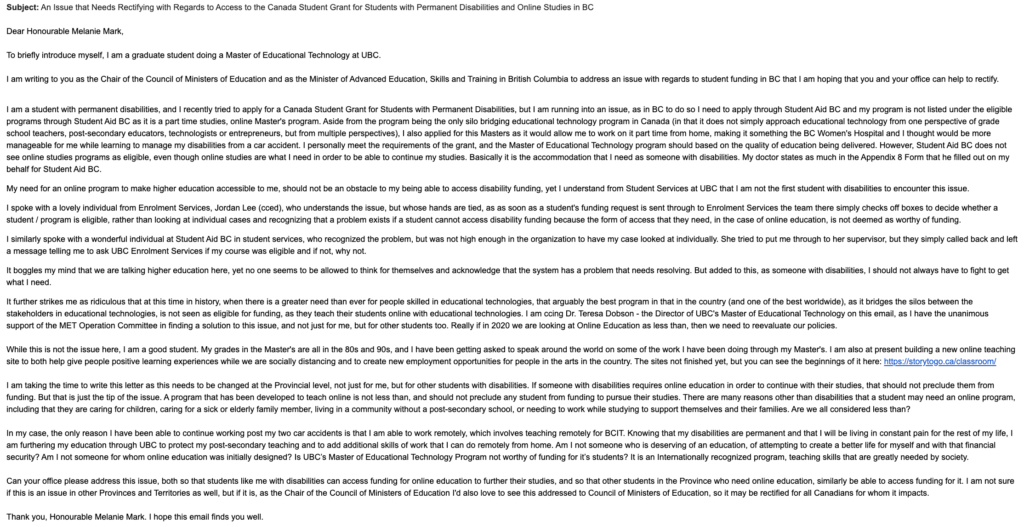
The Reply from StudentAidBC
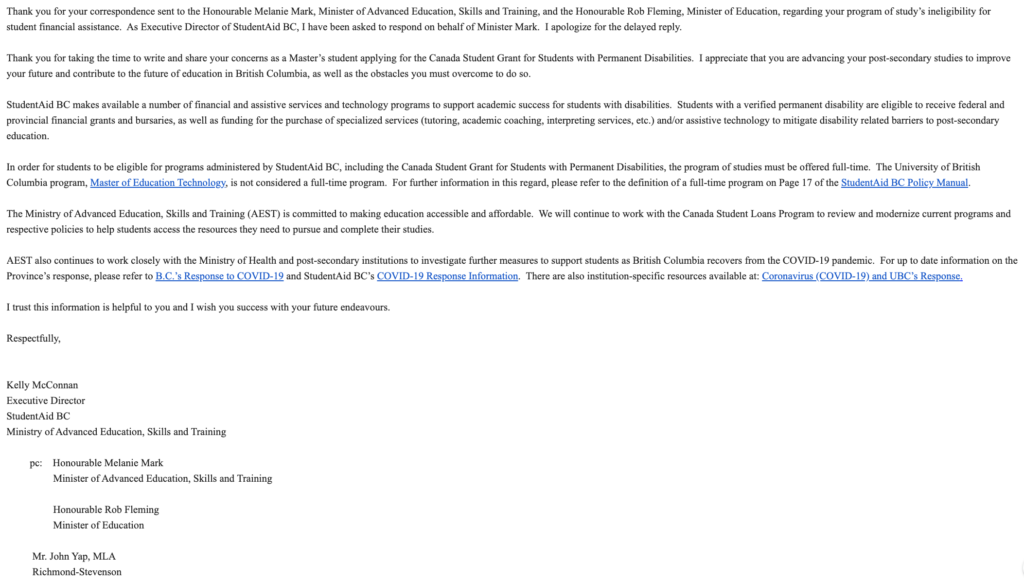
Response to StudentAidBC
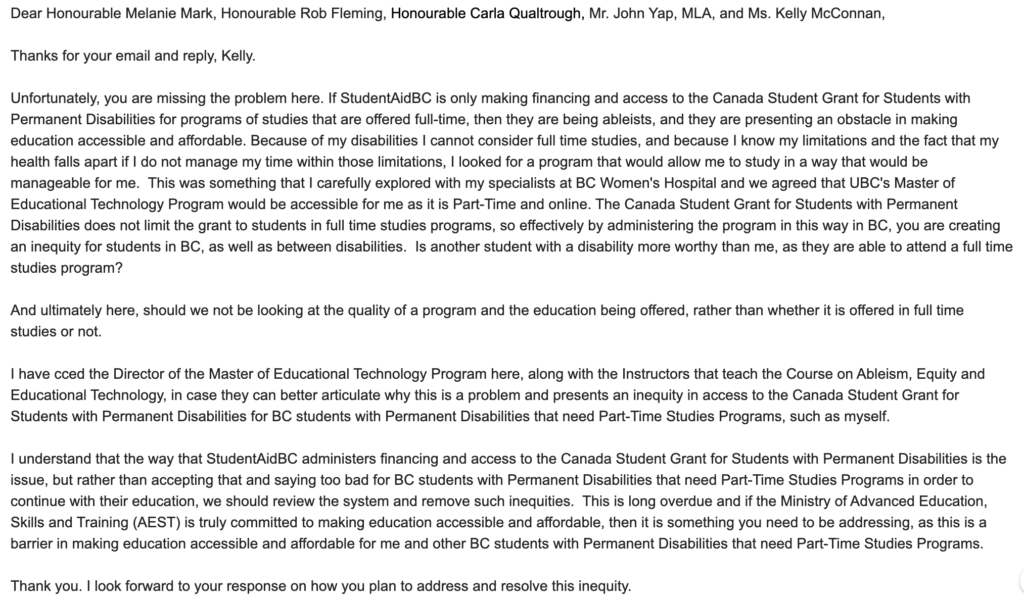
Process / Work Flow Visualizations
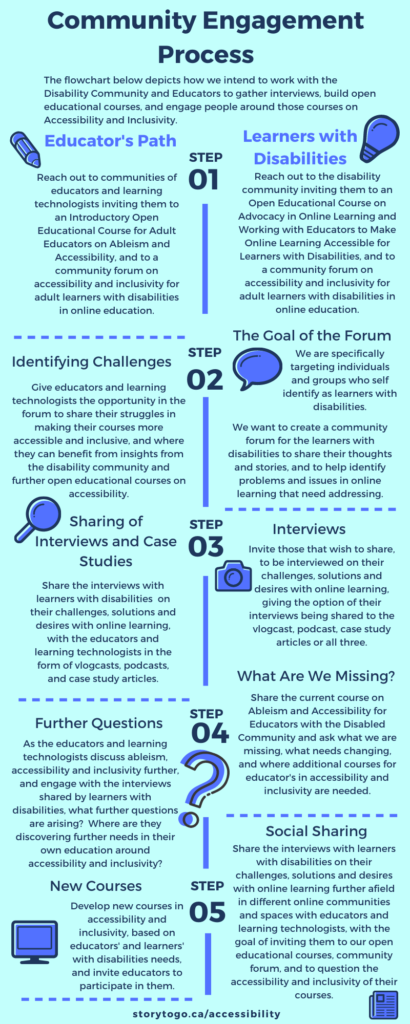
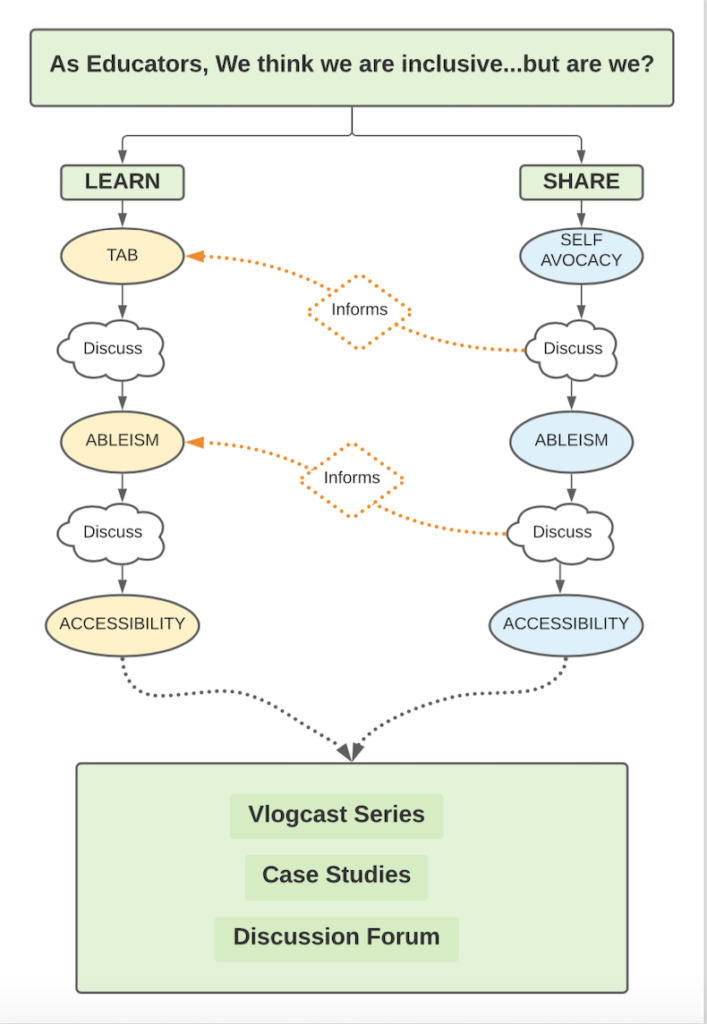
- Cover Letters
- Foundation
- Academic Institution
- Letters of Support
- Research Support